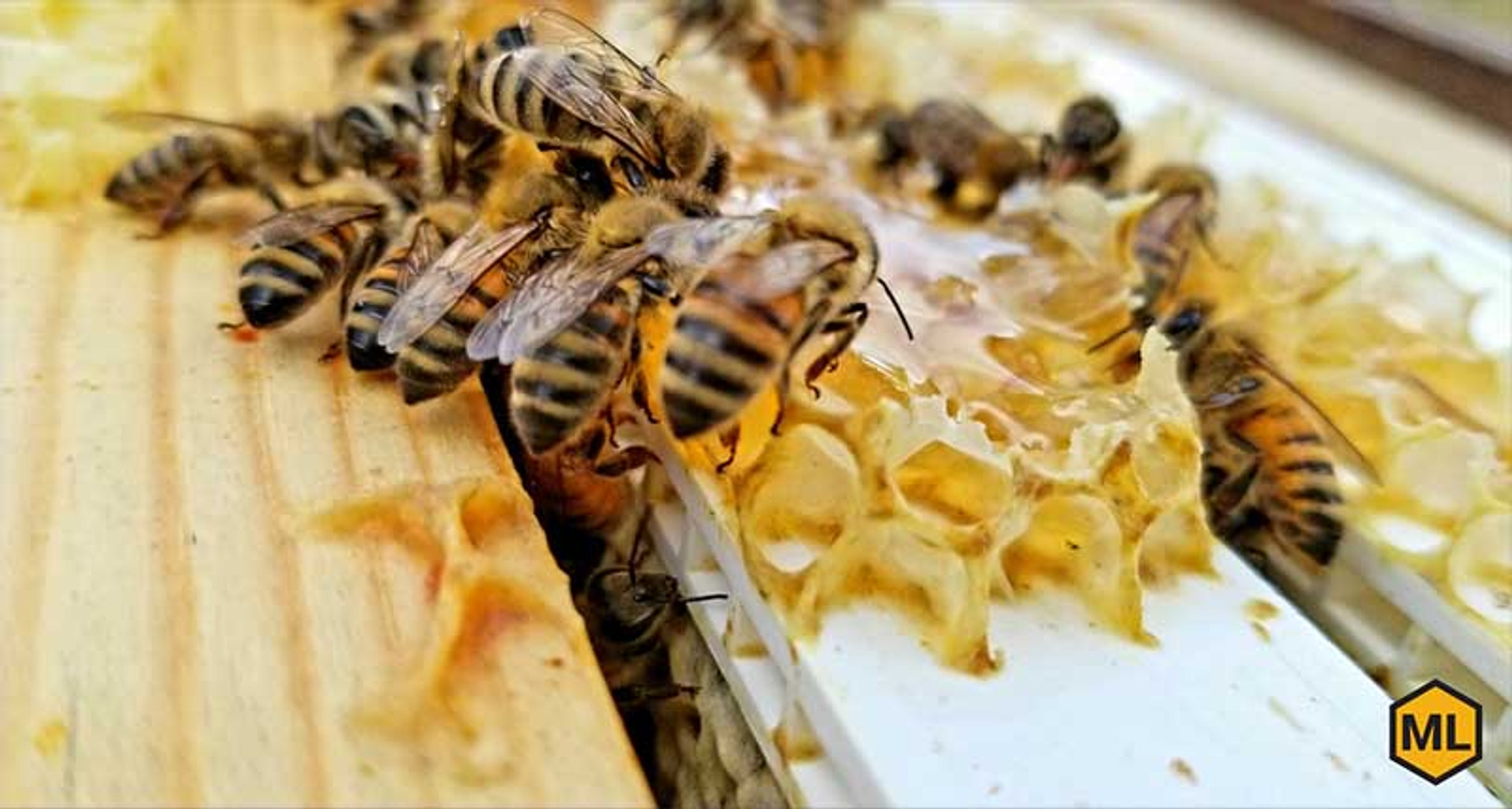All About Healthy Bees
“Okay, all you girls out to the landing board for wing-ups and pollen basket stretching! We are also going to groom well afterwards and dislodge these pesky Varroa mites.”
Obviously we can’t put our bees through this regimen but there are a lot of things we can do to help keep them healthy. I am going to get back to the basics here, so you seasoned beekeepers may want to either skip ahead or bear with me.
What are healthy bees?
- Healthy bees are headed by great queens
- They are disease and parasite free
- They live in solid equipment
- They have room to expand and grow
- They have ample stores of nectar and pollen
- They have access to nearby water
- They show traits of hygienic behavior
Healthy bees are happy bees
Great queens, in my opinion, are bred from survivor stock that has not been chemically treated and yet survived through all the problems that bees face today. (The chemicals I am referring to are the hard chemicals commonly used by beekeepers, such as Coumophos and Fluvalinate.) These queens lay a great solid brood pattern and build rapidly in the spring to catch the first nectar flows. In some cases these queens may not produce the most gentle of offspring but I am of the opinion that you need a tough bee to survive.
Even with great queens there are a lot of things that we as beekeepers can do to help ensure healthy hives. Let’s start with the home where we want them to live.
Bees do not like filth and go to great lengths to keep their homes clean and sterile. We can aid them by scraping bottom boards if using solid ones and or dumping our Varroa screens periodically.
We can provide them with solid, well-ventilated boxes. The boxes should be placed in full sunlight facing the east. The eastern exposure will get them moving earlier in the morning and full sunlight on the hives may help in the control of the Small Hive Beetle (SHB).
The ground around our hives should be maintained for the control of SHB and the grass and weeds should not be allowed to grow tall, as this can provide a highway into the hive for other pests.
Frames should be maintained in the hive by scraping off excess wax, burr comb and propolis, as this will aid the beekeeper in doing thorough inspections and making sound management decisions.
If no water is nearby, a water supply should be provided.
A system of record keeping should be in place to aid the beekeeper in tracking what is working and what is not.
Healthy, good food should be provided in times of dearth and protein supplements should be used when there is a lack of pollen.
Entrance reducers should be used when the colonies are weak or when there is a danger of robbing.
Mouse guards should be put on hives in the fall.
The bee yard should be maintained in good order so as not to attract skunks and other predators with a sweet tooth—don’t throw discarded wax or dump old bee food nearby.
Queens should be replaced at their first signs of failing.
Continuing education should be sought to aid in the care of your bees.
My management practice is to medicate my bees with Fumidil-B in the spring and fall to aid in the prevention of Nosema disease. I will also make a mix of 1-to-1 sugar syrup with four times the recommended feeding dose of Pro-Health to be applied as a drench at a ratio of about one to one-and-a-half cups per colony.
This is sprayed directly on the bees on a warm day followed by a warm night. Never feed the Fumidil-B or apply the drench with honey supers on. Supplemental feeding and drenching should be done prior to the flow and again after the harvest. Mite checks should be done periodically and if using chemical controls be sure to follow the directions to the letter. If using more passive treatments, let common sense guide you.
I once saw a headline on the cover of a tabloid that said “World’s Weather Out Of Control.” I thought when was it ever controlled? This applies to all aspects of nature including beekeeping.
Even when you feel you have followed the correct path and have done all you could do there are things that are simply out of our control, and they can be quite humbling.

